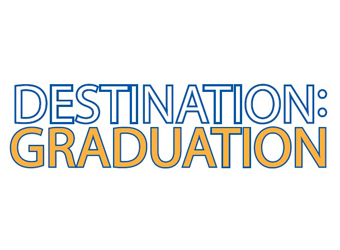 The Destination Graduation program was established as a way to help low-income, first-generation, and veteran students overcome non-academic barriers to college completion.
The Destination Graduation program was established as a way to help low-income, first-generation, and veteran students overcome non-academic barriers to college completion.
“We help students when they have unexpected emergencies like car trouble, or when they lose their jobs or hours at work,” said Keren Rohena, program manager for Destination Graduation. “If they live paycheck to paycheck, they can’t afford a $1,000 car repair while they’re in school.”
Destination Graduation was launched in 2015 by local college access network CFCAN (Central Florida College Access Network), in partnership with Heart of Florida United Way (HFUW) and Seminole State College of Florida. The collaboration, which was spearheaded by CFCAN, has allowed HFUW to apply its expertise as an emergency assistance provider to Seminole State College students.
The program recently unveiled a free toolkit that will give other communities the opportunity to replicate its success.
“The toolkit was a request from the SunTrust Foundation because one of their missions is creating communities that are more financially confident,” Rohena said. “Destination Graduation does that by helping people finish college and get better jobs.”
Between 2015 and 2018, Destination Graduation assisted 908 students, the majority of whom received referrals to support services. Of the 119 Emergency Persistence Fund requests during that same time period, 35% were related to housing insecurity, outpacing utilities (22%) and even tuition assistance (22%) as the three biggest non-academic barriers for Seminole State College students.
In 2017, 70% of students who received Emergency Persistence Funds through Destination Graduation re-enrolled or graduated from Seminole State College the semester after receiving assistance. To compare, only 57% of the general low-income student population at Seminole State College persisted during 2016. In that same year, only 42% of students experiencing crisis who did not receive any services persisted. That’s a 28 point persistence gain that has continued in the years since the pilot began.
The toolkit allows leaders interested in replicating Destination Graduation in their communities to complete a Self-Assessment. Users are then urged to fill out an application to gain access to the full toolkit, which Rohena says will guide community leaders through creating working groups, applying for grants, drafting a memorandum of understanding, and much more.
To learn more, Rohena will lead a “Destination Graduation” presentation at the 2019 Florida College Access Network Summit. Register today at fcansummit.org.
RELATED ARTICLES:
Join the conversation at the 2019 Florida College Access Network Summit
